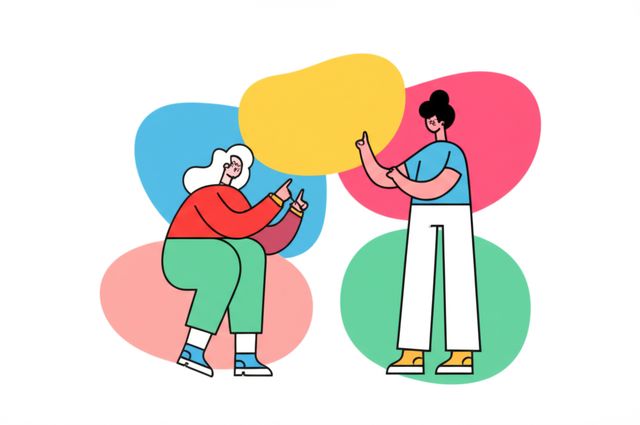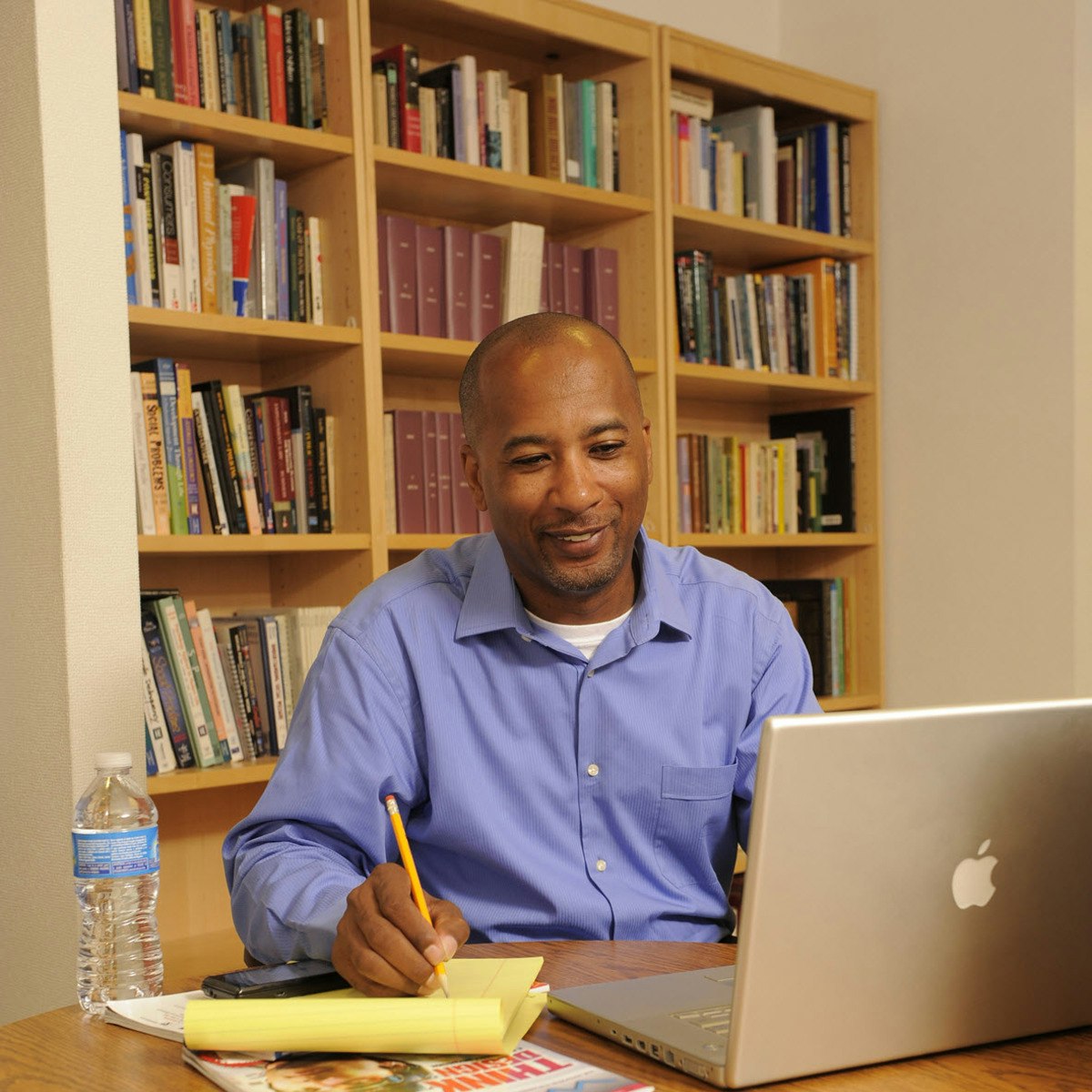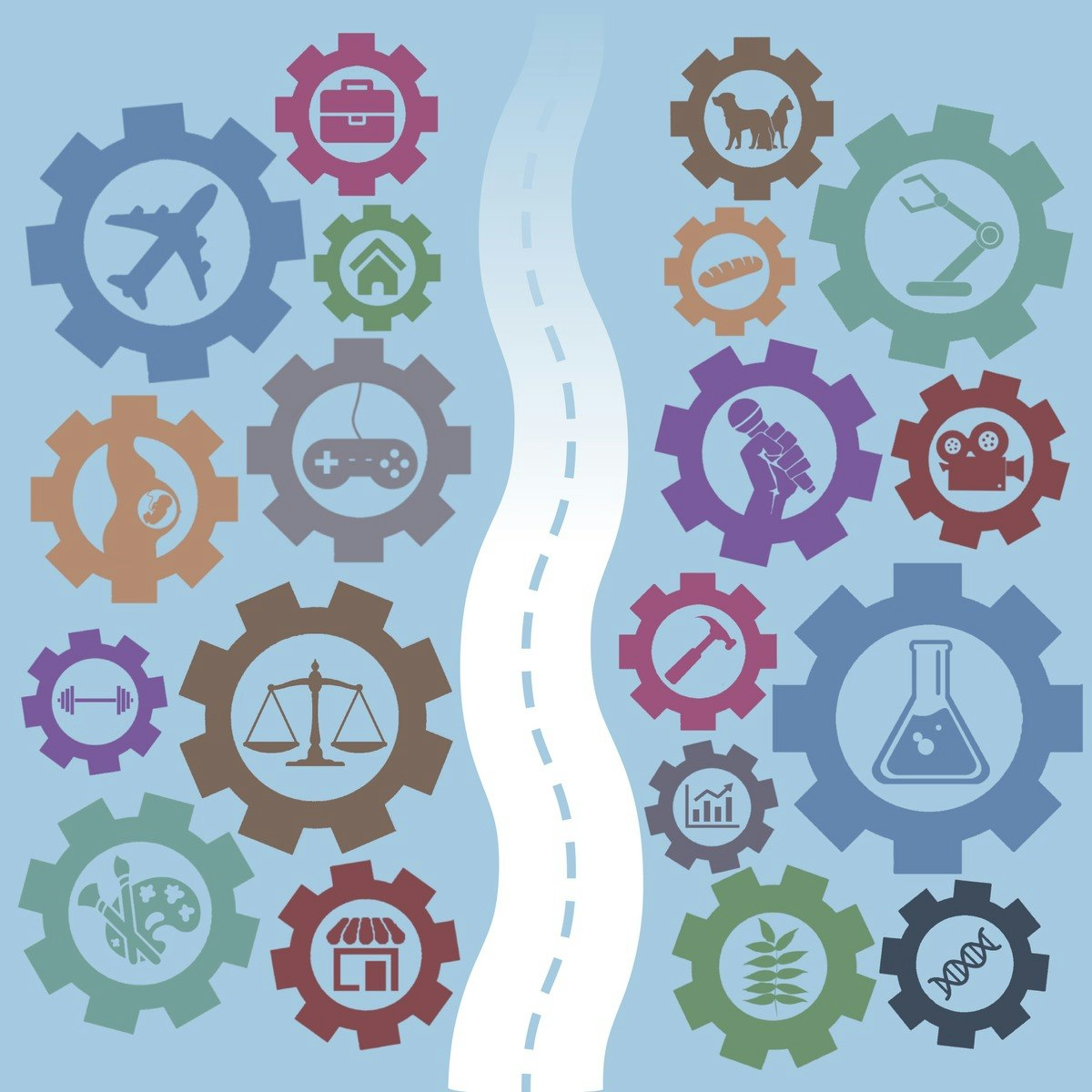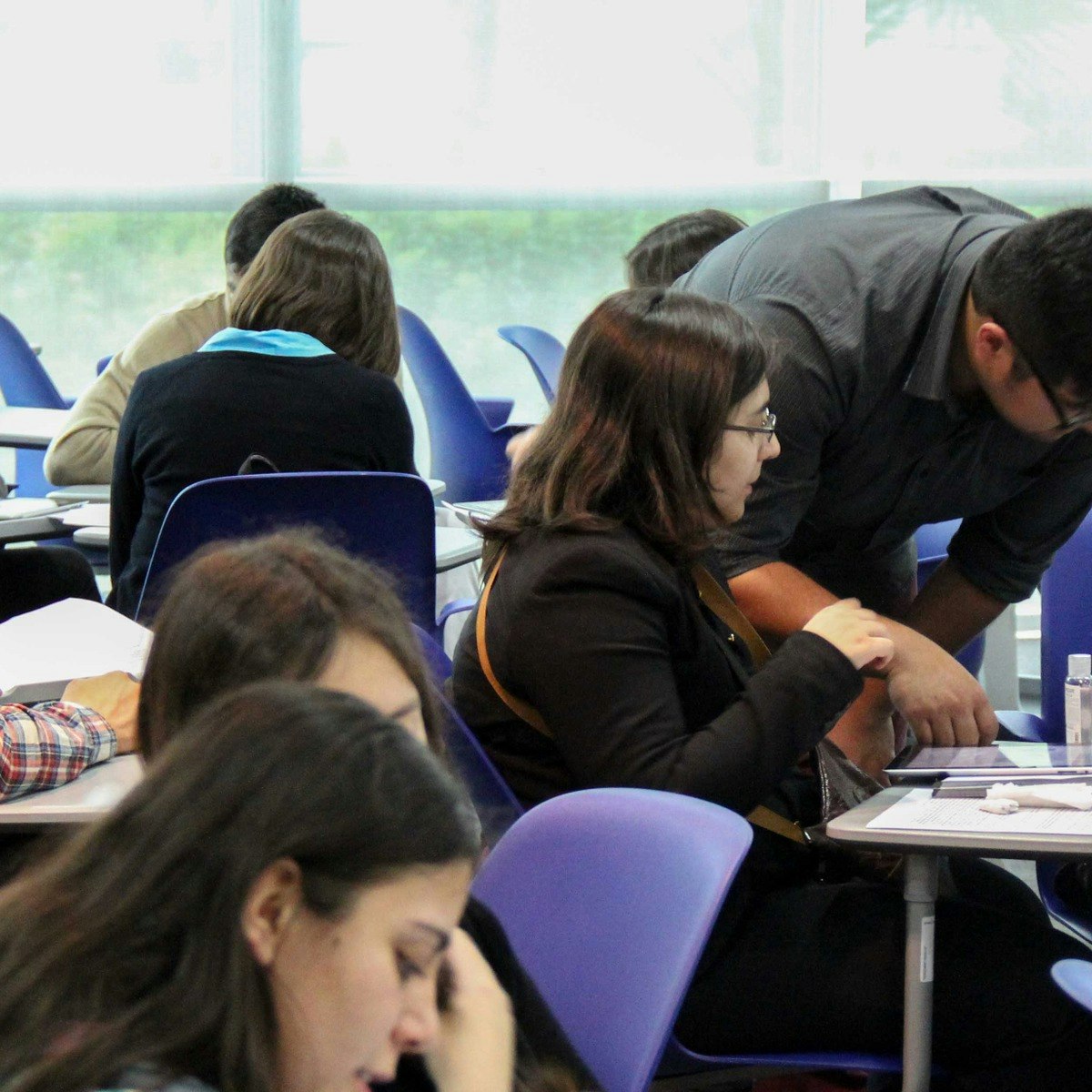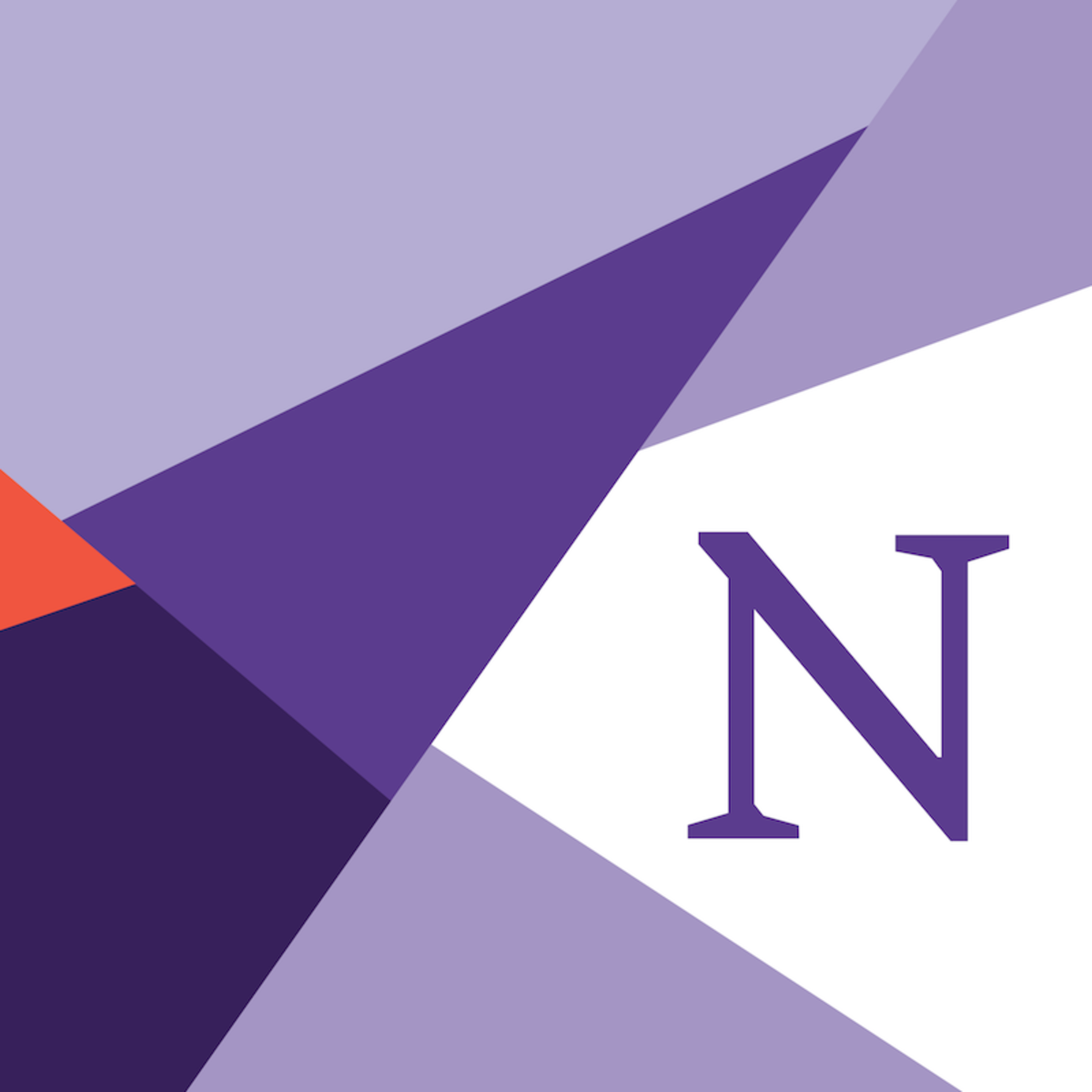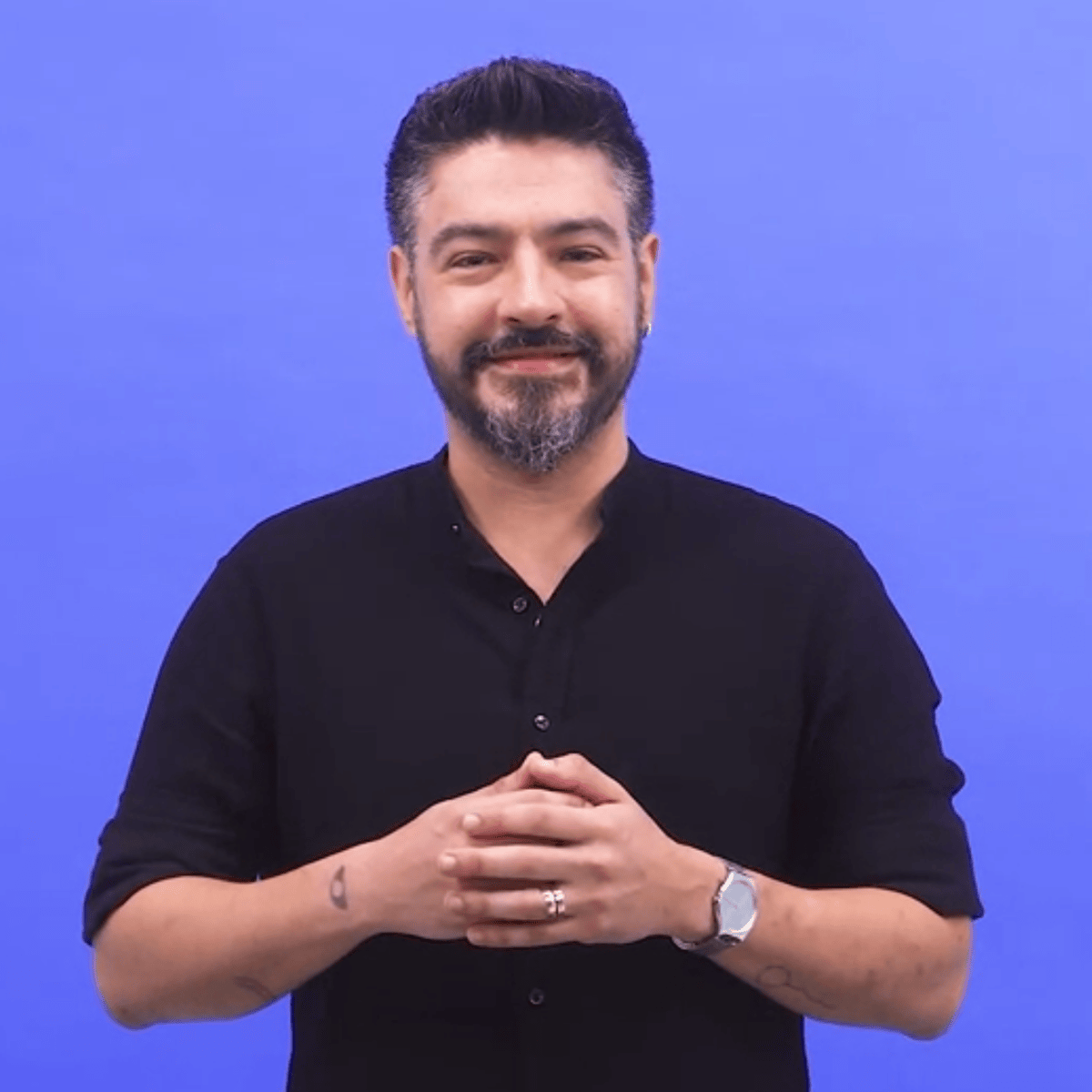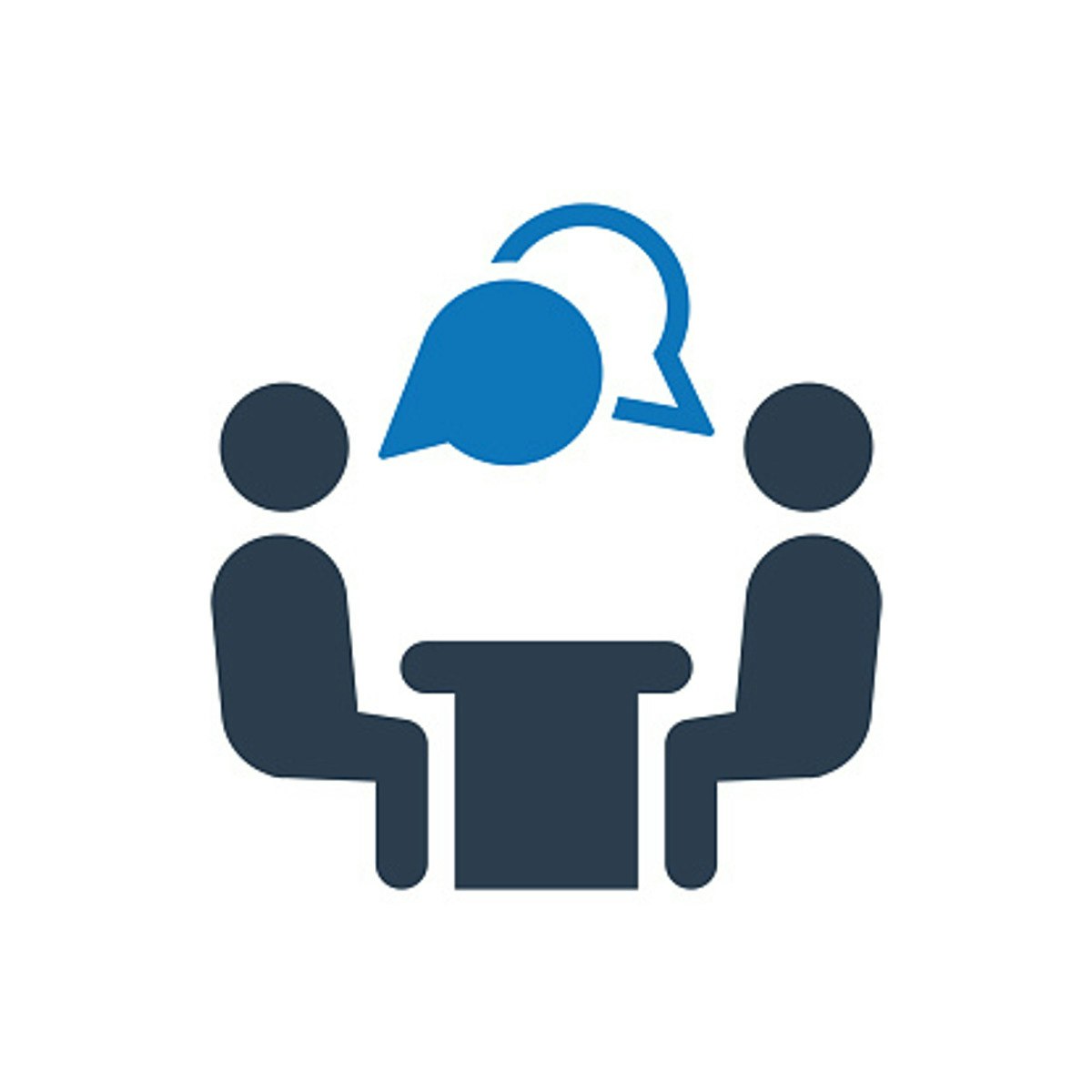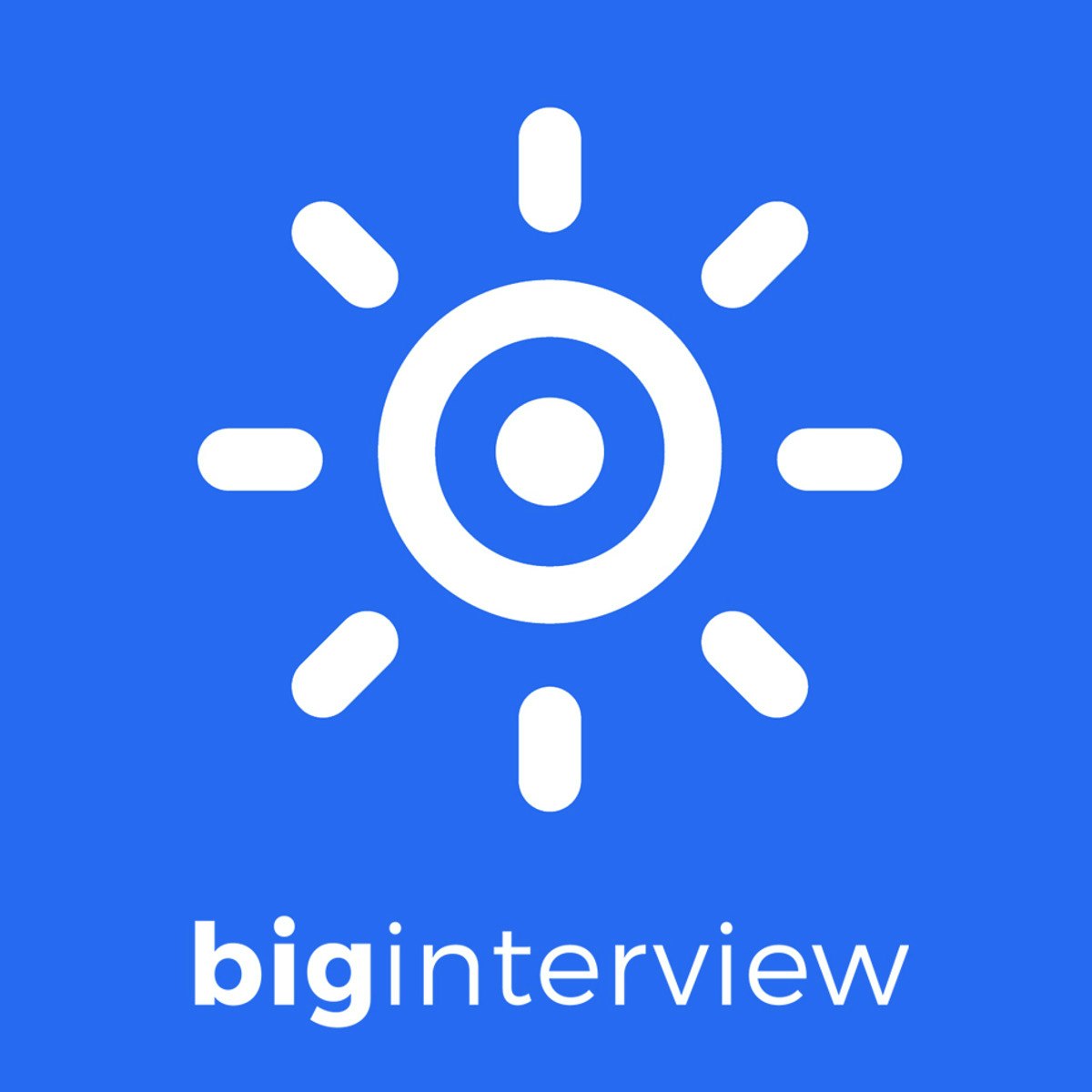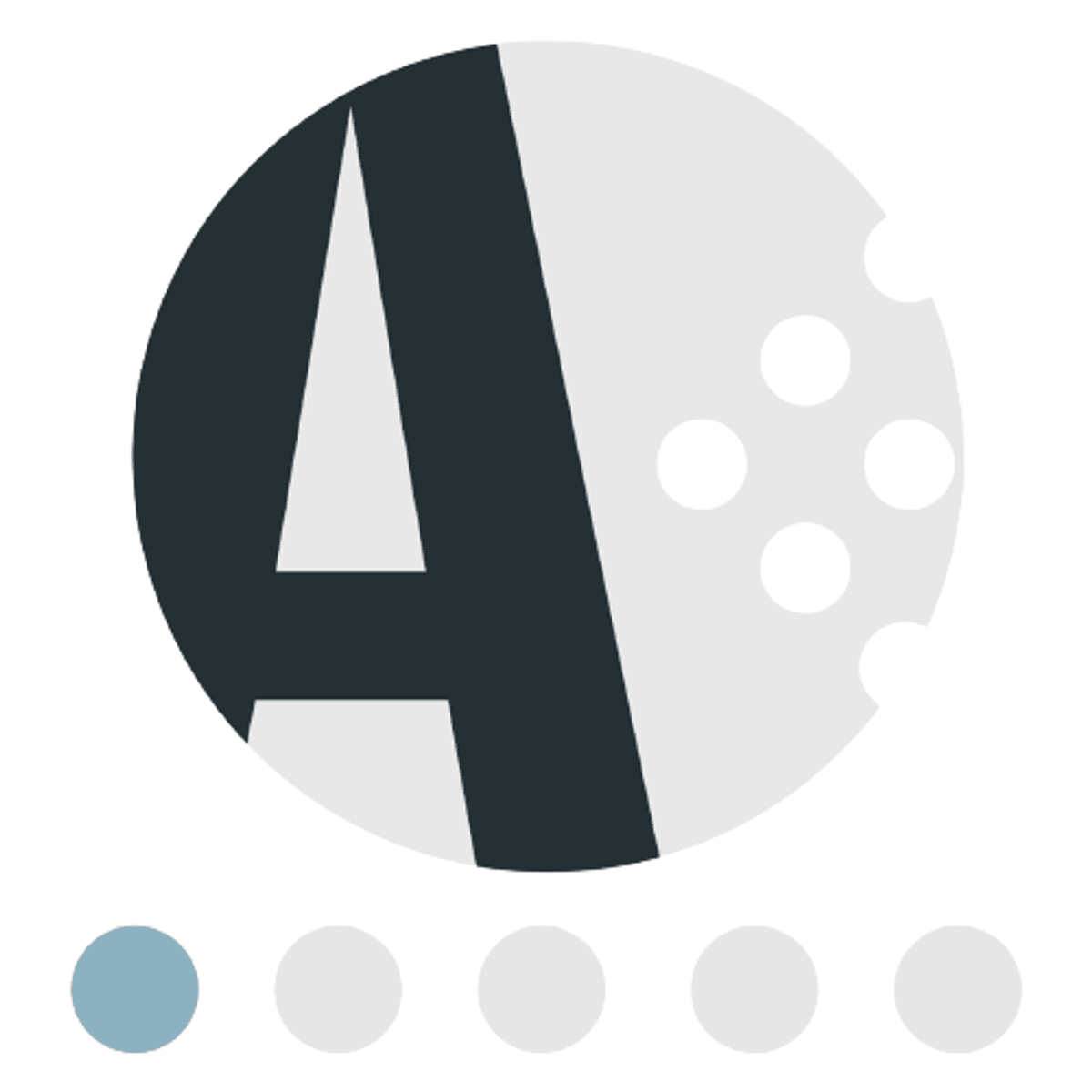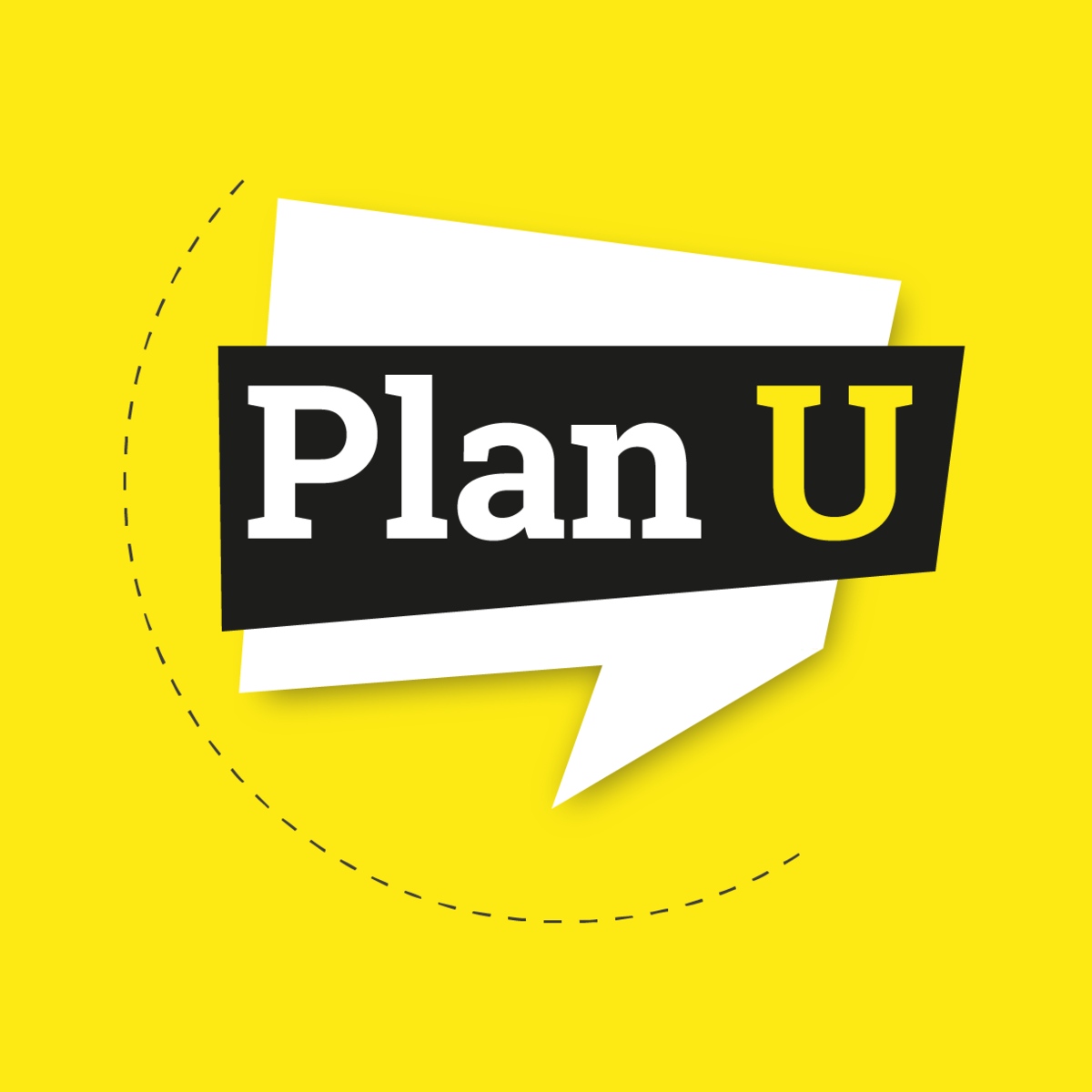Self-Assessment
Comprehensive Guide to Self-Assessment
Self-assessment is the process of looking inward to evaluate your own abilities, values, interests, and personality traits. It is a reflective practice where you critically examine your performance, skills, and competencies. Think of it as taking stock of who you are, what you enjoy, and where your talents lie. This process is more than just a casual glance; it's an active and often structured way of understanding yourself better.
The fundamental purpose of self-assessment is to gain a deeper understanding of yourself. This self-awareness is the cornerstone of personal and professional development. It allows you to identify your strengths, pinpoint areas for improvement, and clarify what truly motivates you. By engaging in self-assessment, you can align your personal goals with your professional responsibilities, leading to a more purposeful and fulfilling life. This understanding can be particularly exciting as it empowers you to make informed decisions about your education, career, and personal growth. Imagine discovering a hidden talent or passion that could lead you down a new and rewarding path, or identifying a skill gap that, once addressed, could unlock new opportunities. Self-assessment provides the map and compass for this journey of discovery and development.
Self-assessment is a crucial skill for personal development and career planning. It helps you set realistic goals, make better decisions, and navigate life's challenges with greater confidence. In daily life, we engage in informal self-assessment constantly. For example, after a conversation, you might reflect on how well you communicated your thoughts. Or, after completing a task, you might consider what you did well and what you could have done differently. These everyday reflections are basic forms of self-assessment, helping us learn and adapt.
Historical Context and Theoretical Foundations
Understanding where the idea of self-assessment comes from can give us a richer appreciation of its value. It's not a new concept; rather, it has roots in various disciplines, including psychology, philosophy, and education. These fields have, for centuries, explored how individuals understand themselves and their place in the world.
As a formal practice, self-assessment has evolved, with contemporary views emphasizing its role in lifelong learning and continuous improvement in both personal and professional spheres. This contrasts with some historical views that might have seen self-reflection as a more passive or purely philosophical endeavor.
For those interested in exploring the academic underpinnings of self-assessment, OpenCourser offers a wide range of courses in Psychology and Education that touch upon these theories and their applications.
The Evolution of Self-Assessment Concepts
Philosophers throughout history, from Socrates with his famous "know thyself" to more modern existentialist thinkers, have emphasized the importance of introspection and self-understanding. In psychology, the early 20th century saw the rise of psychodynamic theories, which, while not directly focused on self-assessment as we know it today, highlighted the significance of understanding one's inner world. Later, humanistic psychology, with figures like Carl Rogers and Abraham Maslow, brought a stronger focus to self-awareness, personal growth, and the individual's potential.
In the realm of education, thinkers like John Dewey championed experiential learning and reflection as key components of the educational process. The idea that students should be active participants in their learning, including evaluating their own progress, has gradually gained traction. Over time, these diverse intellectual currents have converged, contributing to the development of self-assessment as a more structured and widely applied practice.
The shift towards recognizing individuals as active agents in their own development has been a crucial milestone. This means not just being a passive recipient of feedback, but actively engaging in understanding one's own learning and performance.
Key Theoretical Frameworks
Several psychological theories provide a robust foundation for understanding how and why self-assessment works. For instance, Social Cognitive Theory, developed by Albert Bandura, emphasizes the role of observational learning, self-efficacy (belief in one's capabilities), and self-regulation. Self-assessment is a key component of self-regulation, as it involves monitoring one's own behavior and making adjustments to achieve goals.
Self-Determination Theory, proposed by Edward Deci and Richard Ryan, is another influential framework. It suggests that humans have innate psychological needs for competence, autonomy, and relatedness. Self-assessment can support these needs by helping individuals feel more competent as they understand their strengths, more autonomous as they take ownership of their learning and development, and potentially more related if self-assessment is used constructively in social or work contexts.
These theories, among others, highlight that self-assessment isn't just about introspection for its own sake; it's deeply connected to fundamental human motivations and learning processes. They provide the "why" behind the practice, explaining its power to foster growth and development.
Influential Figures and Milestones
While it's difficult to pinpoint single individuals who "invented" self-assessment, various figures have significantly contributed to its concepts and practices. In psychology, the work of researchers focusing on metacognition – thinking about one's own thinking – has been pivotal. John Flavell is often credited with popularizing the term "metacognition" in the 1970s, which is central to effective self-assessment.
In education, the movement towards formative assessment, where assessment is used to improve ongoing learning rather than just to grade, has heavily influenced the adoption of self-assessment practices. Researchers and educators like Paul Black and Dylan Wiliam have been instrumental in promoting assessment for learning, which includes self and peer assessment as key strategies.
A significant milestone has been the increasing recognition in workplaces of the value of employees taking an active role in their performance management and development. This has led to the incorporation of self-assessment components in performance reviews and personal development planning.
Historical Views Versus Contemporary Understanding
Historically, self-reflection might have been viewed as a more solitary, perhaps even spiritual or philosophical, pursuit. The emphasis was often on understanding one's character or moral standing. While this introspective aspect remains, contemporary understanding of self-assessment is more action-oriented and often tied to specific goals, whether in education, career development, or personal improvement.
Today, self-assessment is seen as a dynamic process that involves not just looking inward but also gathering evidence, comparing oneself to standards or criteria, and making plans for future action. There's also a greater appreciation for the potential biases and challenges involved in self-assessment, leading to the development of more structured approaches and the emphasis on combining self-assessment with other forms of feedback.
Furthermore, the advent of technology has provided new tools and platforms for self-assessment, making it more accessible and, in some cases, more data-driven than ever before. This blend of timeless introspection with modern methodologies characterizes the current landscape of self-assessment.
Core Concepts and Models
To effectively engage in self-assessment, it's helpful to understand the key dimensions typically examined and the common frameworks or models that can guide the process. These tools provide structure and help ensure a comprehensive look at oneself.
Self-assessment aims to paint a holistic picture by looking at various facets of an individual. It’s not just about what you can do, but also about what you value, what sparks your interest, and the ingrained patterns of your personality. Understanding these distinct yet interconnected areas is crucial for meaningful self-insight.
Key Dimensions of Self-Assessment
When you embark on a self-assessment journey, you'll typically explore several core dimensions. These include:
- Skills: These are your capabilities. They are often divided into hard skills (teachable, technical abilities like coding, data analysis, or proficiency in a foreign language) and soft skills (interpersonal attributes like communication, teamwork, leadership, and problem-solving). Recognizing both types is vital for a complete picture.
- Values: These are the principles and beliefs that are most important to you. They guide your decisions and influence your satisfaction with different life and career choices. Examples include financial security, creativity, helping others, independence, or lifelong learning.
- Interests: These are the activities, subjects, or topics that you genuinely enjoy and find engaging. Aligning your work or studies with your interests often leads to greater motivation and fulfillment.
- Personality: This refers to your characteristic patterns of thinking, feeling, and behaving. Understanding your personality traits (e.g., introversion/extroversion, openness to experience, conscientiousness) can help you find environments and roles where you're likely to thrive.
- Strengths: These are the things you naturally do well, your talents, and areas where you consistently perform strongly. Leveraging your strengths is often a more effective path to success than solely focusing on fixing weaknesses.
- Weaknesses: These are areas where you may struggle, lack proficiency, or have room for improvement. Acknowledging weaknesses is the first step towards addressing them or developing strategies to mitigate their impact.
These books offer deeper insights into understanding and leveraging your personal attributes:
Common Self-Assessment Models and Frameworks
Several models and frameworks provide structured ways to conduct self-assessment. Some of the most common include:
- SWOT Analysis: This is a popular strategic planning tool that can be adapted for personal self-assessment. It involves identifying your Strengths, Weaknesses, Opportunities (external factors you can leverage), and Threats (external factors that could pose challenges).
-
Johari Window: Developed by Joseph Luft and Harrington Ingham, this model helps people better understand their relationship with themselves and others. It uses a four-quadrant window:
- Open Area: What you know about yourself and others also know.
- Blind Spot: What others know about you, but you don't realize.
- Hidden Area: What you know about yourself but don't reveal to others.
- Unknown Area: What neither you nor others know about yourself.
- Skills Inventories/Audits: These often involve listing various skills (both hard and soft) and rating your proficiency level for each. This can help identify skill gaps and areas for development. You can learn more about assessing your skills with resources like skills audit guides.
- Values Clarification Exercises: These exercises help you identify and prioritize your core values. They might involve ranking a list of values or reflecting on past experiences to uncover what truly matters to you.
These frameworks provide a starting point, and the specific approach can be tailored to individual needs and goals. Many online courses and personal development resources incorporate these models.
These courses can help you build foundational knowledge for understanding and applying self-assessment models:
Purpose and Application of Different Models
Each self-assessment model serves a slightly different purpose and is suited to different contexts. A SWOT analysis, for example, is excellent for strategic career planning or when considering a significant life change. It helps you assess your internal capabilities (strengths and weaknesses) in the context of your external environment (opportunities and threats). This can inform decisions about pursuing a new job, starting a business, or choosing a field of study.
The Johari Window is particularly useful for improving self-awareness in interpersonal relationships and team settings. By understanding your open, blind, hidden, and unknown areas, you can work on improving communication, building trust, and enhancing teamwork. It often highlights the importance of seeking feedback from others to gain a more complete picture of yourself.
Skills inventories are highly practical for identifying specific areas for skill development. If you're aiming for a particular job or promotion, a skills inventory can show you which skills you need to acquire or strengthen. This then allows you to create a targeted learning plan. Similarly, values clarification exercises are fundamental when making major life decisions, such as choosing a career path or deciding on a company to work for. Ensuring alignment between your actions and your core values is a key driver of long-term satisfaction and well-being.
Differentiating Informal Reflection and Structured Self-Assessment
It's important to distinguish between informal reflection and structured self-assessment. Informal reflection is something most of us do naturally. It's the casual thinking about our experiences, what went well, or what we could have done differently. For example, mulling over a past conversation or feeling pleased with a small accomplishment are forms of informal reflection. While valuable, it can be sporadic and may not always lead to deep insights or actionable plans.
Structured self-assessment, on the other hand, is a more deliberate and systematic process. It often involves using specific tools, models (like SWOT or Johari Window), or a set of guiding questions. It typically requires dedicated time and effort and aims to produce a more comprehensive and objective understanding of oneself. Structured self-assessment is more likely to lead to concrete action plans because it encourages a deeper dive into specific areas and often involves recording insights and goals.
While informal reflection is a good starting point, engaging in structured self-assessment periodically can provide more profound benefits for personal and professional growth. It transforms casual introspection into a powerful tool for intentional development.
Methods and Tools
A variety of methods and tools are available to facilitate the self-assessment process. These range from simple, introspective techniques to more formal, structured approaches, often enhanced by technology. Choosing the right method depends on your personal preferences, the specific goals of your self-assessment, and the time you can dedicate.
The aim is to find approaches that resonate with you and provide meaningful insights. Whether you prefer the quiet contemplation of journaling or the structured feedback of a 360-degree assessment, the key is to engage in a way that fosters genuine self-discovery.
For those looking to explore different methods, resources on Personal Development can offer practical guidance.
Diverse Self-Assessment Methods
Several methods can be employed for self-assessment, each offering unique benefits:
- Journaling: Regularly writing down your thoughts, experiences, reflections, and feelings can be a powerful way to increase self-awareness. It allows you to track patterns, process emotions, and gain clarity over time. Reflective journals prompt deeper analysis of learning experiences and challenges.
- Questionnaires and Inventories: These are structured sets of questions designed to assess specific traits, skills, values, or interests. Examples include personality tests (like the Myers-Briggs Type Indicator or Big Five assessments), skills inventories, and values clarification tools. Many are available online, though it's important to choose reputable ones.
- Feedback Seeking (e.g., 360-Degree Feedback): Actively asking for feedback from peers, managers, mentors, friends, or family can provide valuable external perspectives on your strengths and weaknesses. A 360-degree feedback process in a work context involves collecting anonymous feedback from a range of colleagues.
- Behavioral Observation: This involves consciously observing your own behavior in different situations. For instance, how do you react under pressure? How do you contribute in team settings? Paying attention to your actions and their consequences can reveal much about your tendencies.
- Portfolio Reviews: Particularly relevant for creative professionals or students, a portfolio review involves collecting and reflecting on examples of your work over time. This can highlight progress, identify strengths, and showcase areas for development.
These methods are not mutually exclusive and can often be used in combination for a more comprehensive self-assessment.
These courses delve into aspects of feedback and self-reflection:
The Role of Technology in Self-Assessment
Technology has significantly expanded the accessibility and variety of self-assessment tools. Numerous apps and online platforms now offer guided self-assessment exercises, digital journals, and automated feedback.
Online assessment tools, ranging from career aptitude tests to personality profilers, provide instant results and often link to resources for further exploration. For example, platforms like the University of Florida's CHOMP tool (Career Help or Major Planning) offer integrated assessments of interests, values, personality, and skills to help students with educational and career planning. Many learning management systems also incorporate self-assessment quizzes and activities to help students gauge their understanding of course material.
While technology offers convenience and a wealth of options, it's crucial to critically evaluate the credibility and validity of online tools. Look for assessments developed by reputable organizations or based on established psychological principles. Remember that these tools are aids, and the most valuable part of the process is your own reflection on the results.
OpenCourser itself is a platform that helps learners find courses and books, allowing them to easily browse through thousands of options, save interesting choices to a list, and compare information to find the perfect fit for their development needs.
Comparing Pros and Cons of Different Methods
Each self-assessment method has its own advantages and disadvantages:
-
Journaling:
- Pros: Highly personal, flexible, low-cost, promotes deep reflection.
- Cons: Can be subjective, may lack external validation, requires self-discipline.
-
Questionnaires/Inventories:
- Pros: Structured, can provide objective-seeming scores, often compares you to a norm group, can uncover areas you hadn't considered.
- Cons: Validity and reliability vary widely, results can be misinterpreted without guidance, may not capture the nuances of an individual, some have costs.
-
Feedback Seeking:
- Pros: Provides external perspectives, can reduce blind spots, helps validate self-perceptions.
- Cons: Feedback can be biased or difficult to receive, requires trust, can be time-consuming to gather and process.
-
Behavioral Observation:
- Pros: Based on real-world actions, can be very insightful if done honestly.
- Cons: Prone to self-serving bias, can be difficult to be objective about oneself.
-
Portfolio Reviews:
- Pros: Tangible evidence of skills and progress, good for showcasing abilities.
- Cons: May not be applicable to all fields, can be time-consuming to compile and review.
Understanding these trade-offs can help you choose a balanced approach that combines different methods for a richer, more accurate self-assessment.
Choosing Appropriate Methods Based on Goals
The most effective self-assessment strategy involves selecting methods that align with your specific goals. If your goal is general self-discovery and increasing self-awareness, journaling combined with exploring reputable personality or values assessments might be a good start.
If you are focused on career development, such as identifying a new career path or preparing for a promotion, a skills inventory, SWOT analysis, and seeking targeted feedback from mentors or supervisors would be highly relevant. Online career assessment tools can also provide valuable suggestions.
For academic improvement, students might use rubric-based self-assessments for assignments, reflective journals on their learning process, or "exam wrappers" to analyze their performance on tests and plan future study strategies. The key is to be intentional about why you are conducting the self-assessment and to choose tools and techniques that will provide the insights you need to move forward.
Benefits and Applications
Self-assessment is not merely an introspective exercise; it yields tangible benefits and has wide-ranging applications across various aspects of life. From fostering personal growth to guiding career choices and enhancing academic performance, the power of understanding oneself is transformative.
Embracing self-assessment can lead to a more proactive and fulfilling journey, whether you're a student figuring out your path, a professional aiming for career advancement, or anyone seeking to live a more intentional life. The insights gained become a compass, directing your efforts and decisions towards meaningful outcomes.
Benefits for Personal Growth
At its core, self-assessment is a catalyst for personal growth. One of the primary benefits is increased self-awareness. By honestly evaluating your strengths, weaknesses, values, and motivations, you gain a clearer understanding of who you are. This clarity is foundational for making choices aligned with your true self.
This heightened self-awareness directly contributes to more effective goal setting. When you know what you're good at and what you want, you can set more realistic and meaningful goals. For example, if self-assessment reveals a passion for creative writing and strong communication skills, you might set a goal to start a blog or take a writing workshop.
Furthermore, self-assessment improves decision-making. Armed with self-knowledge, you are better equipped to evaluate options and choose paths that resonate with your values and leverage your strengths. This could apply to decisions big and small, from choosing hobbies to making significant life changes. The practice also fosters adaptability, a crucial trait for navigating an ever-changing world.
These books explore themes of personal growth and effectiveness:
Applications in Career Development
Self-assessment is an indispensable tool throughout one's career journey. For those exploring career options, it helps identify fields that align with their skills, interests, and values. This can prevent costly detours into unsuitable professions and guide individuals towards more fulfilling work.
In the job searching process, self-assessment allows individuals to craft more compelling resumes and cover letters by highlighting relevant strengths and experiences. During interview preparation, self-awareness enables candidates to articulate their qualifications confidently and provide authentic examples of their skills in action. Knowing your weaknesses also allows you to prepare thoughtful responses about areas for development.
Once employed, ongoing self-assessment supports performance improvement by helping individuals identify skill gaps and areas for professional development. It can inform discussions during performance reviews and aid in planning for promotions. Many professionals use self-assessment to stay relevant in dynamic fields by proactively seeking new knowledge and skills. As an example, data from the U.S. Bureau of Labor Statistics often highlights the importance of adaptable skill sets in a changing job market.
These courses can assist with various aspects of career development:
You may also be interested in these related topics:
Relevance in Academic Settings
In academic environments, self-assessment empowers students to become more effective and independent learners. By evaluating their own work against criteria, students gain a deeper understanding of learning objectives and quality standards. This can lead to improved academic performance as they identify their own learning needs and set meaningful goals.
Self-assessment helps students identify their preferred learning styles and develop effective study habits. For example, a student who realizes through self-reflection that they learn best through visual aids can incorporate more diagrams and charts into their study routine. It also plays a crucial role in choosing majors and courses. By understanding their academic strengths, interests, and long-term goals, students can make more informed decisions about their educational path.
Furthermore, self-assessment fosters metacognitive skills – the ability to think about one's own thinking. This is a critical skill for lifelong learning, enabling individuals to monitor their comprehension, adjust their learning strategies, and take responsibility for their educational journey. Many universities, like the University of Florida, offer tools specifically designed to help students with this process.
The following courses are designed to help students navigate academic choices and enhance their learning skills:
Applications in Team and Organizational Contexts
The benefits of self-assessment extend beyond the individual to teams and entire organizations. When team members engage in self-reflection and share insights (appropriately and in a psychologically safe environment), it can lead to improved communication and understanding. Recognizing one's own communication style and how it impacts others is a key outcome.
Self-assessment can contribute to better team dynamics. Team members who are aware of their strengths and weaknesses can contribute more effectively and seek support where needed. It can also facilitate more constructive feedback within the team. For instance, Google's Project Aristotle found that psychological safety and effective communication, often rooted in self-awareness, were key to successful teams.
In leadership development, self-assessment is fundamental. Effective leaders must have a strong understanding of their leadership style, strengths, and areas for growth. Many leadership programs incorporate self-assessment tools to help aspiring and current leaders enhance their effectiveness. Organizations that foster a culture of self-assessment often see higher employee engagement and productivity. According to Ethena, self-assessments are indispensable instruments that can serve as catalysts for organizational success.
These courses focus on skills crucial for team and organizational success:
Consider exploring these related topics as well:
Challenges and Limitations
While self-assessment is a valuable tool, it's not without its challenges and limitations. Being aware of these potential pitfalls is crucial for approaching self-assessment thoughtfully and for interpreting its results with a healthy degree of critical thinking. Acknowledging these aspects allows individuals to implement strategies to make their self-assessment efforts more accurate and beneficial.
It's important to remember that self-perception can be tricky. We are often not the most objective observers of ourselves. However, by understanding these limitations, we can navigate the process more effectively and enhance the reliability of our insights.
Subjectivity and Potential Biases
One of the most significant challenges in self-assessment is its inherent subjectivity. Our perceptions of ourselves are often colored by our emotions, experiences, and personal biases. This can lead to inaccuracies in how we evaluate our skills and traits.
Several cognitive biases can distort self-assessment. The self-serving bias is a common one, where individuals tend to attribute successes to their own abilities and efforts, while blaming failures on external factors. This can lead to an overly positive self-view. Conversely, some individuals may exhibit excessive modesty or be overly critical of themselves.
Another well-known phenomenon is the Dunning-Kruger effect. This cognitive bias describes a situation where individuals with low ability at a task overestimate their ability. Essentially, they are "unskilled and unaware of it" because their lack of competence prevents them from recognizing their own mistakes and accurately judging their performance relative to others. Conversely, highly competent individuals may sometimes underestimate their own abilities, assuming that tasks easy for them are also easy for others. Understanding the Dunning-Kruger effect highlights why seeking external benchmarks and feedback is so important.
Challenges in Accurately Assessing Certain Traits or Skills
Accurately assessing certain traits or skills can be particularly difficult. For example, soft skills like emotional intelligence, creativity, or leadership can be harder to quantify and evaluate objectively compared to technical skills like coding proficiency. These skills often manifest in complex interpersonal interactions and may not be easily measured by simple questionnaires.
Similarly, assessing personality traits can be challenging. While personality inventories can provide insights, they are based on self-report, which can be influenced by how a person wants to see themselves or how they think they should be. There's also the complexity that personality can be somewhat context-dependent; we might behave differently in various situations.
The abstract nature of some qualities, and the lack of concrete, universally agreed-upon metrics for them, makes self-assessment in these areas more an art than a precise science. It requires deep reflection and often benefits from triangulation with external feedback.
Potential for Inaccurate Results if Not Done Thoughtfully or Honestly
The value of self-assessment hinges on the individual's commitment to honesty and thoughtful reflection. If a self-assessment is rushed, done superficially, or if the individual is not genuinely open to identifying areas for improvement, the results are likely to be inaccurate and unhelpful. This is sometimes referred to as a "box-checking exercise" if the process isn't taken seriously.
Fear of judgment, even from oneself, can also lead to dishonest responses. If individuals feel pressured to present a certain image, they may inflate their strengths or downplay their weaknesses. This undermines the entire purpose of self-assessment, which is to gain genuine insight for growth.
Moreover, without a clear understanding of the criteria being used for assessment, or if the criteria themselves are vague, individuals may struggle to evaluate themselves accurately. This emphasizes the need for clear frameworks and, when possible, defined standards against which to measure oneself.
Strategies to Mitigate Limitations
Fortunately, there are several strategies to mitigate the challenges and limitations of self-assessment and improve its accuracy:
- Seek External Feedback: Regularly solicit feedback from trusted sources such as mentors, supervisors, peers, or even friends and family. This can help counterbalance personal biases and provide a more rounded view of your abilities and impact. Comparing your self-assessment with how others perceive you can be very illuminating.
- Use Multiple Methods: Don't rely on a single self-assessment tool or technique. Combine different approaches, such as journaling, questionnaires, and feedback, to get a more comprehensive picture. Triangulating information from various sources increases reliability.
- Focus on Behaviors and Specific Examples: Instead of making general statements about traits (e.g., "I am a good leader"), try to recall specific situations and behaviors. What did you actually do? What was the outcome? Focusing on concrete examples makes the assessment more grounded and less prone to vague generalities.
- Be Aware of Biases: Simply knowing about common biases like the self-serving bias or the Dunning-Kruger effect can help you be more critical of your own evaluations. Actively question your assumptions and consider alternative perspectives.
- Use Clear Criteria and Standards: Whenever possible, assess yourself against well-defined criteria or standards. This could involve using a rubric for a specific skill, comparing your work to industry benchmarks, or aligning your self-assessment with organizational performance expectations.
- Practice Regular Reflection: Make self-assessment an ongoing process rather than a one-time event. Regular reflection helps you track your progress, identify patterns, and become more attuned to your own development needs over time.
By employing these strategies, individuals can enhance the objectivity and utility of their self-assessment efforts, turning it into a more powerful tool for genuine growth.
This book discusses how our internal narratives shape our reality, which is relevant to understanding self-perception biases:
Formal Education Pathways
Self-assessment concepts and practices are not only learned informally but are also integrated into various levels of formal education. From early guidance in schools to specialized university programs and advanced research, the educational system plays a role in teaching about and utilizing self-assessment.
Understanding how self-assessment is approached within formal education can be particularly useful for students considering fields where these skills are paramount, or for anyone interested in the academic study of assessment itself.
Self-Assessment in Pre-University Education
Even before university, students often encounter self-assessment concepts, particularly through guidance counseling and career exploration programs. High schools frequently use interest inventories and skills assessments to help students think about potential career paths and corresponding educational choices. These tools encourage young people to reflect on what they enjoy and what they are good at, forming an early basis for self-understanding in relation to future possibilities.
Teachers may also incorporate self-assessment activities in the classroom to help students monitor their learning and understand grading criteria. For example, students might be asked to evaluate their own projects against a rubric before submission or reflect on their participation in group work. These practices aim to develop metacognitive skills and foster a sense of ownership over their learning from a younger age.
The course below is designed to help young adults prepare for their career journey, which often involves early self-assessment:
Relevant University and Graduate Programs
At the university level, self-assessment is both a skill students are encouraged to develop for their own learning and a topic of study within specific disciplines. Several fields delve deeply into the theory and application of assessment, including self-assessment:
- Psychology: Programs in psychology, particularly in areas like counseling psychology, industrial-organizational psychology, and educational psychology, extensively cover assessment methods. Students learn about psychometrics (the science of measuring mental capacities and processes), test development, and the interpretation of various psychological assessments.
- Human Resources: HR programs often include coursework on talent management, performance appraisal, and employee development, all of which can involve self-assessment tools and techniques. Understanding how to design and implement effective self-assessment processes in an organizational context is a key skill.
- Counseling: Counselor education programs train future counselors to use various assessment tools to help clients understand themselves better, make career choices, and address personal challenges. Self-assessment is often a core component of the therapeutic and guidance process.
- Education: Teacher education programs and graduate studies in education explore assessment theory and practice, including how to teach students to self-assess effectively and how teachers can use self-assessment for their own professional development.
Students in these programs not only learn about self-assessment but often engage in it as part of their own academic and professional training.
For those considering these fields, exploring Psychology courses or Human Resources courses on OpenCourser can provide a good introduction.
Typical Coursework and Modules
Within the relevant university programs, specific coursework and modules address assessment concepts. Students might encounter courses titled:
- Psychological Testing and Assessment: Covers the principles of psychometrics, the construction and validation of tests, and the ethical use of various assessment tools.
- Career Counseling and Development: Focuses on theories of career choice, career assessment tools (including interest inventories, skills assessments, and values clarification exercises), and counseling techniques for career planning.
- Organizational Behavior/Psychology: Explores topics like performance management, employee motivation, and leadership development, often touching upon how self-assessment is used in workplace settings.
- Educational Assessment: Delves into different types of assessments used in schools, including formative and summative assessment, rubric development, and strategies for student self-assessment and peer assessment.
- Research Methods in Social Sciences: While not solely about self-assessment, these courses teach students about research design, data collection, and analysis, which are foundational for understanding and critically evaluating assessment tools.
These courses provide the theoretical knowledge and practical skills needed to understand, develop, implement, and interpret various forms of assessment, including self-assessment.
This course touches upon student assessment within teaching:
PhD and Research Opportunities
For those interested in advancing the field of assessment, PhD programs and research opportunities offer avenues for deeper exploration. Researchers in psychology, education, and related fields investigate various aspects of self-assessment, such as:
- Validity and Reliability: Developing and validating new self-assessment tools, and examining the accuracy and consistency of existing ones.
- Impact on Learning and Performance: Studying how self-assessment practices affect student learning outcomes, employee performance, or personal development.
- Cognitive Processes: Investigating the cognitive and metacognitive processes involved when individuals assess themselves, including the study of biases like the Dunning-Kruger effect.
- Cross-Cultural Differences: Exploring how cultural factors might influence self-perception and the effectiveness of different self-assessment approaches.
- Technological Applications: Researching how technology, including AI and machine learning, can be used to create more effective, personalized, or accessible self-assessment tools.
These research endeavors contribute to a more nuanced understanding of self-assessment and help refine its application in various contexts. Pursuing advanced research in this area typically involves rigorous training in research methodology, statistical analysis, and a deep understanding of psychological and educational theories.
Informal Learning and Online Resources
Beyond formal education, a wealth of informal learning opportunities and online resources can help individuals develop and apply self-assessment skills. The accessibility of information today means that anyone with curiosity and motivation can embark on a journey of self-discovery and personal development through self-study.
This path is particularly appealing for those seeking to understand themselves better, make career changes, or supplement their existing knowledge without enrolling in traditional academic programs. The key is to navigate the vast landscape of resources discerningly and focus on practical application.
If you're considering a career change or want to improve your current work, the OpenCourser Learner's Guide offers articles on how to use online courses effectively, whether you're a student, a working professional, or a lifelong learner.
Feasibility of Self-Study for Effective Self-Assessment
Engaging in effective self-assessment through self-study is entirely feasible. Many foundational concepts of self-assessment are intuitive and can be grasped through accessible materials. The primary requirements are a willingness to be honest with oneself, dedicate time for reflection, and a commitment to applying the insights gained.
While formal training can provide deeper theoretical understanding and access to sophisticated tools, the core principles of identifying strengths, weaknesses, values, and interests can be explored independently. The process becomes more effective when learners actively engage with materials, try out different techniques, and reflect on their experiences, rather than passively consuming information.
The journey of self-study in self-assessment is one of personal exploration. It’s about finding what resonates and what yields useful insights for your unique situation. It empowers individuals to take control of their own development at their own pace.
Common Pathways for Independent Learning
There are several common pathways for individuals wishing to learn about and practice self-assessment independently:
- Books: Many excellent books on personal development, career guidance, psychology, and leadership incorporate self-assessment principles and exercises. Seminal texts in these areas often provide frameworks and reflective questions that guide the reader through a self-discovery process.
- Workshops and Seminars: Both online and in-person workshops are frequently offered on topics like career planning, personal branding, leadership skills, and mindfulness, many of which include self-assessment components.
- Reputable Websites and Blogs: Numerous websites, including those from universities, career coaching services, and psychological associations, offer articles, guides, and sometimes free assessment tools. Look for resources that are evidence-based and transparent about their methodologies.
- Online Courses: A vast array of online courses cover aspects of self-assessment, from understanding personality to developing specific soft skills or planning a career change. Platforms like OpenCourser aggregate courses from various providers, making it easier to find relevant options.
The key to successful independent learning is to be selective and critical. Prioritize resources from credible authors, institutions, or organizations. Testimonials and reviews can also offer some guidance on the quality of resources, such as those found on OpenCourser course pages.
These courses are designed for self-paced learning and cover skills relevant to self-assessment:
These books are considered valuable reads for anyone interested in personal and professional development through self-understanding:
How Online Resources Supplement Formal Education
Online resources and informal learning can be powerful supplements to formal education, or even act as a preparatory step. For students currently in academic programs, online materials can offer alternative explanations of concepts, provide practical tools not covered in class, or allow for deeper dives into specific areas of interest related to self-assessment.
For individuals considering a return to formal education, exploring online courses and resources can help them clarify their goals and choose a program that aligns with their self-assessed needs and interests. It can also help bridge knowledge gaps, making the transition into a formal program smoother. For instance, someone considering a career change into counseling might take introductory online courses in psychology to affirm their interest and build foundational knowledge before committing to a degree.
Moreover, online resources often provide more flexibility and cater to a wider range of learning styles than traditional classroom settings. They allow learners to proceed at their own pace and revisit materials as needed, which is particularly beneficial for complex topics like understanding psychological biases or mastering reflective techniques.
Initiating Personal Projects Based on Self-Assessment
One of the most valuable outcomes of self-assessment, whether through formal or informal learning, is the insight it provides for initiating personal projects. Once you have a clearer understanding of your strengths, weaknesses, interests, and values, you can design projects that help you grow and achieve your goals.
For example, if a self-assessment reveals a desire to improve public speaking skills (a weakness) to advance in a career that requires frequent presentations (an interest and goal), a personal project could be to join a Toastmasters club or volunteer for speaking opportunities. If self-assessment highlights strong analytical skills and an interest in data, a project might involve taking an online course in Data Science and applying the learned techniques to a personal dataset.
Other personal projects could include creating a detailed career development plan, researching and networking in a new field of interest, starting a side hustle based on a passion, or developing a structured plan to learn a new language or technical skill. These projects transform self-assessment from a passive exercise into an active pursuit of personal and professional development.
Utilizing Self-Assessment in Career Progression
Self-assessment is not just a one-time activity for choosing a career; it's a continuous process that plays a vital role throughout your entire career progression. From landing your first job to seeking promotions and managing long-term career satisfaction, understanding yourself is key to navigating the professional landscape effectively.
For those embarking on their careers or considering a pivot, self-assessment provides the clarity needed to make informed decisions. For seasoned professionals, it's a tool for ongoing refinement and growth. The journey can be challenging, but the self-awareness gained is an invaluable asset. Remember that many successful individuals continually reflect on their paths and make adjustments along the way.
Consider exploring resources in Career Development to further support your journey.
Informing Career Choice and Planning
The foundational role of self-assessment in career progression is in informing your initial career choice and subsequent planning. By thoroughly evaluating your interests, values, skills, and personality, you can identify professions and work environments where you are most likely to thrive and find fulfillment. For instance, someone who values autonomy and creativity and possesses strong problem-solving skills might be drawn to entrepreneurship or freelance work, while someone who values stability, teamwork, and has strong organizational skills might prefer a role in a large corporation.
This process helps you move beyond societal expectations or fleeting trends to choose a path that genuinely aligns with who you are. It's about finding the intersection of what you're good at, what you enjoy, what the world needs (and will pay for), and what aligns with your core principles. A well-considered career plan based on solid self-assessment provides a roadmap, helping you set short-term and long-term goals.
These courses are designed to help individuals with career planning and self-management:
Identifying Skills for Resumes and Job Applications
When it comes to applying for jobs, a clear self-assessment helps you identify and articulate the most relevant skills and experiences for your resume, cover letter, and online profiles like LinkedIn. Instead of creating a generic application, you can tailor your materials to highlight the specific competencies that match the job requirements.
For example, if you've identified through self-assessment that you have strong project management skills, you can ensure your resume features specific examples of projects you've successfully led, detailing your responsibilities and achievements. Similarly, understanding your soft skills, such as communication, teamwork, or problem-solving, allows you to weave these into your application narratives, providing evidence of your capabilities. Many employers highly value soft skills; a CareerBuilder study indicated that 77% of employers value soft skills as much as technical skills, with 16% valuing them even more. According to a LinkedIn study, 57% of leaders consider soft skills more important than hard skills when hiring.
This focused approach makes your application stand out and demonstrates to potential employers that you understand both the role and your suitability for it.
This course can help you prepare for the job application process:
Aiding Interview Performance and Networking
Self-awareness gained through self-assessment is a significant asset in job interviews and networking situations. During an interview, being able to confidently and authentically speak about your strengths, provide examples of how you've used your skills, and discuss your career goals makes a strong positive impression. It also prepares you to answer questions about your weaknesses or areas for development thoughtfully, by showing that you are self-aware and proactive about growth.
In networking, understanding your own interests and goals helps you ask more targeted questions and make more meaningful connections. You can articulate what you're looking for and what you can offer, leading to more productive conversations. It allows you to connect with others on a more genuine level, as you are speaking from a place of self-understanding.
If you are looking to improve your interview skills, these courses might be helpful:
Early Career Opportunities Leveraging Assessment Skills
For those starting their careers, having skills in or an understanding of assessment can open doors to specific roles. Fields like Human Resources, recruitment, and career counseling directly utilize assessment principles.
Entry-level positions or internships in HR departments often involve tasks related to employee screening, performance management, or training and development, where an understanding of how to assess skills and potential is valuable. [8rxuqd]
Similarly, roles in university career services or talent acquisition firms require individuals who can help others assess their skills and match them with opportunities. [rcov4m] Even if not directly in an assessment-focused role, a strong ability to self-assess and understand the assessment processes used by employers provides a competitive edge in any early career stage.
Consider these career paths if you have an interest in assessment:
Supporting Performance Reviews and Long-Term Management
Ongoing self-assessment is crucial for navigating performance reviews and managing your career in the long term. Many organizations incorporate a self-evaluation component into their formal performance appraisal process. Being adept at reflecting on your accomplishments, challenges, and contributions allows you to participate more effectively in these discussions and advocate for your development and advancement.
Beyond formal reviews, regular self-reflection helps you identify when you might be ready for new responsibilities, a promotion, or even a career shift if your current role no longer aligns with your evolving goals or values. It enables you to proactively manage your career, identify skill gaps that need addressing to reach the next level, and make strategic decisions about your professional development. This continuous loop of assessment, goal setting, action, and reflection is the hallmark of successful long-term career management.
This course focuses on developing excellence in your professional life, which involves continuous self-assessment:
Ethical Considerations and Responsible Use
While self-assessment is primarily a personal tool, its application, especially in organizational or counseling contexts, carries ethical responsibilities. Ensuring that self-assessment processes are fair, confidential, and used appropriately is crucial for protecting individuals and maintaining trust.
Both individuals undertaking self-assessment and those administering or using the results of assessments (like HR professionals or counselors) need to be mindful of these ethical dimensions. Responsible use ensures that self-assessment remains a constructive tool for growth rather than a source of anxiety or unfair judgment.
Importance of Confidentiality
Confidentiality is a cornerstone of ethical assessment practices, particularly when self-assessments are shared with others, such as in an organizational performance review or a counseling session. Individuals must feel safe to be honest in their self-evaluations without fear that their vulnerabilities or candid admissions will be inappropriately disclosed or used against them.
In organizational settings, clear policies should be in place regarding who has access to self-assessment data and how that information will be used and stored. Breaches of confidentiality can erode trust and discourage genuine self-reflection in the future. Counselors and coaches also have a professional obligation to maintain the confidentiality of client self-assessments, adhering to ethical codes of conduct within their professions.
Addressing Potential Misuse of Results
Self-assessment results, if not handled responsibly, have the potential for misuse. For example, there's a risk of stereotyping individuals based on personality assessments or making unfair comparisons between employees if self-evaluations are used in isolation for high-stakes decisions like promotions or compensation.
It's important that self-assessment results are seen as one piece of a larger puzzle, not the sole determinant of an individual's worth or potential. Over-interpreting results, especially from informal or unvalidated tools, can lead to flawed conclusions. For instance, a self-assessment indicating a "weakness" in a certain area should prompt further exploration and development opportunities, not punitive action or labeling.
Organizations and practitioners should ensure that self-assessment data is used for its intended purpose, primarily for development and growth, and not for discriminatory practices or to create undue pressure.
Best Practices for Individuals Undertaking Self-Assessment
Individuals engaging in self-assessment also have a responsibility to approach the process ethically and constructively:
- Honesty: The most fundamental aspect is being honest with yourself. The goal is genuine self-understanding, not presenting an idealized version of yourself.
- Context Awareness: Recognize that your skills and behaviors might manifest differently in various contexts. Avoid making sweeping generalizations based on limited experiences.
- Avoiding Over-Interpretation: Treat the results of any single assessment tool, especially informal ones, as indicative rather than definitive. Don't let a label from a personality test, for example, rigidly define you or limit your perceived potential.
- Focus on Growth: Use the insights gained from self-assessment primarily as a tool for personal and professional development, rather than for self-criticism or comparison with others.
- Seek Clarification: If you are using formal assessment tools as part of an organizational process or with a counselor, don't hesitate to ask for clarification on how the results will be used and what they mean.
A mindful and balanced approach maximizes the benefits while minimizing potential negative self-judgment.
Ethical Guidelines for Developers and Administrators
Developers of self-assessment tools and those who administer them (e.g., HR professionals, educators, counselors) have specific ethical obligations:
- Validity and Reliability: Tool developers should strive to create instruments that are valid (measure what they claim to measure) and reliable (produce consistent results). They should be transparent about the development process and limitations of their tools.
- Informed Consent: Individuals should be fully informed about the purpose of any assessment, how their data will be used, who will see it, and their right to refuse participation or withdraw consent.
- Competence: Administrators should be competent in using and interpreting the assessment tools they employ. This includes understanding the tool's theoretical basis, appropriate applications, and limitations.
- Cultural Sensitivity: Assessments should be chosen and administered in a way that is sensitive to cultural differences and avoids bias against any particular group.
- Data Security and Privacy: Robust measures must be in place to protect the security and privacy of assessment data.
- Feedback and Interpretation: When results are shared, they should be communicated clearly, constructively, and with an opportunity for discussion and clarification. Administrators should help individuals understand the results in a meaningful context.
Adherence to these ethical principles, such as those outlined by professional organizations like the American Psychological Association or the Project Management Institute for their respective fields, ensures that assessment practices are responsible and beneficial.
Future Trends
The field of self-assessment is not static; it's evolving with technological advancements and changing workplace demands. Looking ahead, several trends are likely to shape how individuals and organizations approach self-understanding and development.
These future developments promise more personalized, dynamic, and insightful self-assessment experiences, further integrating this practice into the fabric of learning and career growth.
Impact of AI and Machine Learning
Artificial intelligence (AI) and machine learning (ML) are poised to significantly impact self-assessment tools and processes. AI algorithms can analyze vast amounts of data (e.g., from performance metrics, learning activities, or even communication patterns) to provide more nuanced and personalized insights than traditional assessments. Imagine AI-powered platforms that can identify subtle skill gaps or predict future learning needs based on an individual's unique profile and career aspirations.
AI could also enhance the feedback process, offering real-time, adaptive suggestions for improvement. For example, an AI writing assistant might not only correct grammar but also provide feedback on tone or clarity, contributing to self-assessment of communication skills. However, the use of AI in assessment also brings ethical considerations, such as data privacy, algorithmic bias, and the need for transparency in how AI-driven insights are generated. Ensuring fairness and avoiding the creation of "black box" assessments where the reasoning is opaque will be crucial.
The World Economic Forum has discussed the future of jobs and the skills needed, often highlighting the interplay between human skills and technological advancements. You can explore their insights on platforms like the World Economic Forum website.
Continuous Self-Assessment and Real-Time Feedback
There is a growing trend away from periodic, formal self-assessment events (like annual reviews) towards more continuous self-assessment and real-time feedback loops. Modern work environments, particularly agile ones, emphasize ongoing reflection and adaptation. Technology facilitates this shift, with tools that allow for frequent check-ins, micro-feedback, and continuous tracking of progress against goals.
This approach makes self-assessment a more integrated part of the daily or weekly workflow rather than a separate, often burdensome, task. Regular, smaller doses of reflection and feedback can lead to more timely adjustments and a more dynamic approach to personal and professional development. This aligns with the idea of lifelong learning and staying agile in a rapidly changing world.
Emphasis on Soft Skills, Emotional Intelligence, and Adaptability
As routine tasks become more automated, there's a growing emphasis in the workplace on uniquely human skills, often termed "soft skills." These include critical thinking, creativity, collaboration, communication, emotional intelligence, and adaptability. Future self-assessment tools and methodologies will likely focus more intensely on helping individuals understand and develop these crucial competencies.
Assessing soft skills can be more challenging than evaluating technical proficiency, often requiring more qualitative methods, scenario-based assessments, or 360-degree feedback. The ability to understand and manage one's own emotions and perceive the emotions of others (emotional intelligence) is increasingly recognized as a key differentiator for success, especially in leadership roles. [9t8wrc] Adaptability, or the capacity to thrive in changing circumstances, is also paramount in a volatile world.
Research consistently shows the high value employers place on these skills. For example, studies indicate that a vast majority of job success can be attributed to well-developed soft skills. A LinkedIn study found 92% of talent professionals consider soft skills equally or more important than hard skills.
This course specifically addresses emotional intelligence, a key soft skill:
Integration with Personalized Learning and Development Platforms
The future will likely see tighter integration of self-assessment with personalized learning and development platforms. Insights gleaned from self-assessment will directly feed into tailored learning pathways, suggesting specific courses, resources, or experiences to address identified needs or pursue aspirations.
Imagine a system where, after completing a self-assessment of your leadership skills, you are presented with a curated list of online courses, articles, mentorship opportunities, and even project assignments designed to strengthen your specific areas for development. This data-driven approach to personal development can make learning more efficient and effective, ensuring that individuals focus their efforts where they will have the most impact.
Platforms like OpenCourser, which help learners find a vast array of online courses and books, are part of this ecosystem, providing the resources that can be linked to personalized development plans. The "Activities" section on OpenCourser course pages, which suggests tasks before, during, and after a course, also hints at this more guided and integrated approach to learning.
This course focuses on agile leadership, which often involves continuous learning and adaptation:
Frequently Asked Questions
Here are answers to some common questions about self-assessment, particularly as it relates to career exploration and development. These aim to provide quick, practical insights for those looking to apply self-assessment in their lives.
How often should I perform a self-assessment for career purposes?
There's no single "right" answer, as the ideal frequency can vary based on your career stage, goals, and how rapidly your field is changing. However, many experts suggest that a comprehensive self-assessment for career purposes is beneficial at least once a year. This could coincide with annual performance reviews or be a dedicated personal exercise.
Beyond a major annual review, it's also helpful to engage in more frequent, informal self-reflection, perhaps quarterly or even weekly, especially when working on specific goals or navigating changes. For example, if you're actively job searching, learning a new skill, or in a new role, more regular check-ins can help you stay on track and make timely adjustments. The key is to find a rhythm that works for you and keeps self-awareness an active part of your career management.
Can self-assessment help me choose a university major or career path?
Absolutely. Self-assessment is a fundamental first step in choosing a university major or career path. By helping you understand your interests, values, skills, and personality, self-assessment provides the crucial data needed to identify fields of study and professions that are likely to be a good fit for you.
For instance, if your self-assessment reveals a strong interest in problem-solving, a high aptitude for mathematics, and a value for contributing to technological advancement, you might explore majors in engineering or computer science. Many universities offer career counseling services that utilize self-assessment tools to guide students through this decision-making process. Remember, choosing a major or career that aligns with your authentic self significantly increases your chances of academic success and long-term job satisfaction.
These courses are specifically designed to assist with career and major choices:
Are self-assessment tests accurate?
The accuracy of self-assessment "tests" (more accurately termed inventories or questionnaires) varies greatly depending on the specific tool and how it's used. Professionally developed and validated instruments, often used in psychology or career counseling (like the Strong Interest Inventory or the Myers-Briggs Type Indicator, when administered and interpreted by a qualified professional), tend to have higher reliability and validity.
However, many free online quizzes or informal self-assessment tools may not have undergone rigorous scientific validation. It's important to approach their results with a degree of caution. Furthermore, accuracy also depends on your honesty and self-awareness when responding. No test can be perfectly accurate, as human personality and skills are complex. The best approach is to use results as a starting point for reflection, not as a definitive label, and to combine insights from multiple sources, including feedback from others.
How can I use self-assessment results in a job interview?
Self-assessment results can be invaluable in a job interview. Firstly, the process of self-assessment itself boosts your self-awareness, allowing you to speak more confidently and authentically about your strengths, experiences, and career goals. When an interviewer asks, "Tell me about your strengths," you'll have well-thought-out answers supported by specific examples from your self-reflection.
If you've identified areas for development (weaknesses), self-assessment helps you frame these constructively. Instead of just stating a weakness, you can discuss it as an area you're actively working on, demonstrating self-awareness and a commitment to growth. For example, "Through self-assessment, I realized I could improve my project delegation skills, so I've taken an online course and am actively practicing this with my current team." This shows proactivity rather than just a flaw.
You can also use insights about your values and interests to explain why you are a good fit for the company culture and the specific role.
What's the difference between a personality test and a skills assessment?
While both are types of self-assessment tools, they focus on different aspects of an individual:
- A personality assessment (or inventory) aims to describe your characteristic patterns of thinking, feeling, and behaving – your inherent tendencies and preferences. Examples include the Myers-Briggs Type Indicator (MBTI) or the Big Five personality traits model. They help you understand your work style, how you interact with others, and what environments you might find most comfortable or stimulating.
- A skills assessment (or inventory) focuses on your acquired abilities and competencies – what you can do. This can include hard skills (e.g., proficiency in a software program, fluency in a language) and soft skills (e.g., communication, teamwork, problem-solving). Skills assessments help identify your current capabilities and any gaps you might need to address for a particular role or career goal.
In essence, personality assessments are more about "who you are," while skills assessments are more about "what you can do." Both provide valuable information for career planning and personal development.
Where can I find reliable self-assessment tools?
Finding reliable self-assessment tools requires some discernment. Here are a few places to look:
- University Career Services: Many colleges and universities offer students and alumni access to validated career assessment tools, often accompanied by counseling to interpret the results.
- Professional Counselors or Coaches: Career counselors, psychologists, and certified coaches are often trained to administer and interpret a range of professional assessment instruments. [7, rcov4m]
- Reputable Online Platforms: Some established organizations offer well-regarded online assessments. For example, the CliftonStrengths (formerly StrengthsFinder) assessment by Gallup is popular for identifying talents. Look for tools with transparent methodologies and evidence of research backing them.
- Books by Experts: Many authoritative books on career development or psychology include self-assessment exercises and questionnaires that are based on sound principles.
Be cautious with free, unbranded online quizzes that make grand claims without providing information about their development or validation. While they can be fun, their results should be taken with a grain of salt. OpenCourser can help you find courses related to Personal Development or Career Development, some of which may guide you through reputable self-assessment exercises.
Can self-assessment help if I'm feeling stuck in my career?
Yes, self-assessment can be particularly helpful if you're feeling stuck or unfulfilled in your career. When you feel stuck, it often means there's a misalignment between your current situation and your deeper needs, values, interests, or potential. Self-assessment is the process that can help you identify the nature of this misalignment.
By revisiting your core values, you might discover that your current job doesn't allow you to live by what's most important to you. By assessing your skills, you might realize you're underutilizing your strengths or that you need to develop new skills to move forward. By exploring your interests, you might uncover passions that could lead to a more engaging career path.
Self-assessment can provide the clarity needed to understand why you feel stuck and identify potential pathways forward, whether that involves making changes in your current role, seeking a new job, or even considering a completely different career direction. It's the first step towards taking proactive control of your career journey.
This course is designed to help individuals find more fulfilling work:
And this book might offer a new perspective on work and life:
Useful Links and Resources
To further aid your exploration of self-assessment and related topics, here are some valuable resources:
OpenCourser Resources
- Browse Courses and Topics: Explore thousands of online courses and a vast library of books across numerous subjects to support your learning and self-assessment journey.
- OpenCourser Learner's Guide: Find comprehensive articles on how to make the most of online learning, from earning certificates to creating a self-study curriculum.
- OpenCourser Notes: Read blog posts on online courses, the education industry, and tips for effective learning.
- OpenCourser Deals: Discover savings on online courses, books, and useful services to support your development.
- Manage Your Lists: Save and organize courses, books, and topics that interest you, and even share your learning paths with others.
External Resources
- U.S. Bureau of Labor Statistics - Career Outlook: Provides articles and data on various careers, skills in demand, and employment projections. For example, their articles often discuss the importance of soft skills.
- World Economic Forum: Offers reports and insights on the future of jobs, skills, and global economic trends. Their website, www.weforum.org, is a rich source of information.
- MindTools: This website offers a variety of articles and resources on career skills, including self-assessment techniques like SWOT analysis and understanding personal values. (Note: While MindTools is a popular resource, always cross-reference with academic or research-backed sources where possible.)
Engaging in self-assessment is a journey of continuous learning and discovery. By utilizing available tools and resources, and by committing to honest self-reflection, you can unlock profound insights that pave the way for personal and professional fulfillment. The path of self-understanding is an investment in yourself, and the rewards are immeasurable.

